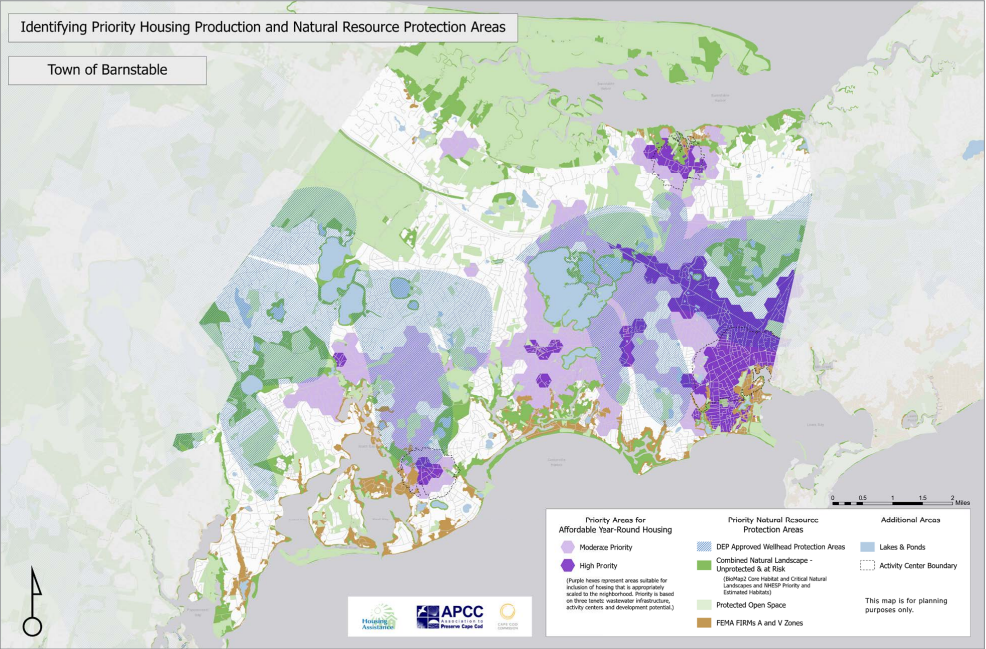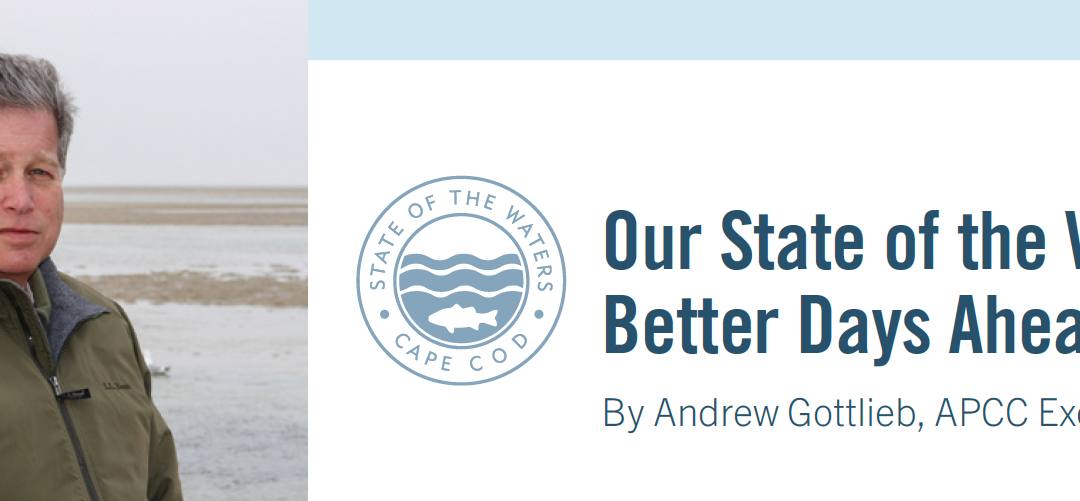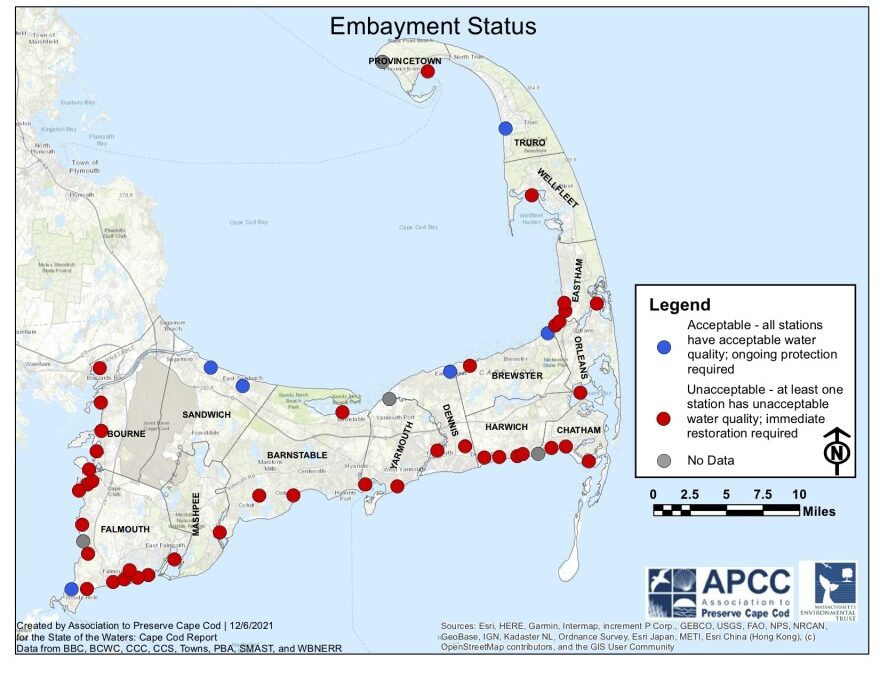In The News
- Home
- /
- News & Events
- /
- In The News
- /
- Page 5
APCC’s Andrew Gottlieb on Cyanobacteria, Election and Climate Change
Association to Preserve Cape Cod Executive Director Andrew Gottlieb joins CapeCod.com’s Grady Culhane to discuss the Cyanobacteria bloom monitoring project as it winds down for the winter season. They also discuss the recent election, and what trends need to be seen at the state and federal level to boost climate resiliency amid warming waters and diminished water quality.

The Enterprise, Sandwich: APCC to Redesign Boat Ramps to Reduce Runoff
In an effort to manage the stormwater runoff that has been impacting bodies of water on Cape Cod, the Association to Preserve Cape Cod (APCC) has selected and identified improvements to be made at 20 potential sites across the region—including at Peters Pond in Sandwich.
Full Article – Web – May require subscription.

Wicked Local: Association to Preserve Cape Cod monitoring 150 ponds for cyanobacteria
Six Cape Cod ponds have cyanobacteria blooms serious enough to possibly shut down swimming and lead to restrictions.
Cyanobacteria can lead to serious illness and even death.
Current ponds where use restrictions are recommended are Santuit Pond in Mashpee, Long Pond in Barnstable, Long Pond in Centerville (a different pond), Scargo Lake in Dennis, the West Reservoir in Harwich and Flume Pond in Falmouth.
Full Article – Web – May require subscription.
WCAI: Toxic blue-green algae blooms are back in local ponds
It’s summer on Cape Cod and that means toxic blue-green algae blooms are back in local ponds.
The algae is usually natural and harmless until it dominates an ecosystem and releases dangerous toxins, as has happened in Mashpee-Wakeby Pond on the Mashpee/Sandwich border and Long Pond in Barnstable. Those ponds are now closed to swimmers.
Boston.com: Toxic algae is back, this time on the Cape
It’s that time of the year.
At least two Cape Cod ponds have posted advisories regarding algae blooms.
As of Sunday, people and pets were warned not to swim or ingest water in any way from the Mashpee-Wakeby Pond due to a cyanobacteria bloom.
Cape Cod Times: A possible toxic bloom discovered at Bearses Pond in Barnstable
BARNSTABLE — The Association to Preserve Cape Cod documented a potentially toxic cyanobacteria bloom at Bearses Pond in Barnstable on June 13.
APCC recommended residents avoid contact with the pond water, specifically citing ingestion of pond water that can occur when swimming. In significant amounts, cyanobacteria can cause “skin irritation, neurological impairment and organ impairment,” Executive Director Andrew Gottlieb said.

CapeCod.com – New Map Identifies Overlapping Housing and Conservation Interests
HYANNIS – A local environmental official highlighted a new mapping tool from Grow Smart Cape Cod that will be used to keep both conservation and housing interests in mind.
Grow Smart was recently unveiled as a partnership between Housing Assistance Corporation and the Association to Preserve Cape Cod.

MVYRADIO – Joe Stickles Interviews Andrew Gottlieb, APCC Executive Director

WBUR: Cape Cod’s water quality is getting worse, report finds
A new report released Monday finds that surface water quality on Cape Cod has degraded for the third year in a row.
The Association to Preserve Cape Cod’s annual State of the Waters report tracks the water quality of the Cape’s freshwater ponds, marine estuaries, and public drinking water.

WCAI: Water quality report: one-third of ponds tested on Cape Cod called ‘unacceptable’
One-third of ponds and nearly 90 percent of embayments on the Cape had ‘unacceptable’ water quality in 2020, according to the Association to Preserve Cape Cod’s third annual State of the Waters report, which also revealed the first-ever less-than-perfect score for a community’s drinking water supplies.
Looking for older news?
We created an “In The News” archive page with APCC news mentions prior to 2019.

